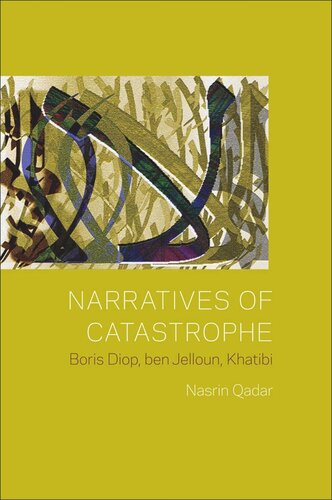

Most ebook files are in PDF format, so you can easily read them using various software such as Foxit Reader or directly on the Google Chrome browser.
Some ebook files are released by publishers in other formats such as .awz, .mobi, .epub, .fb2, etc. You may need to install specific software to read these formats on mobile/PC, such as Calibre.
Please read the tutorial at this link: https://ebookbell.com/faq
We offer FREE conversion to the popular formats you request; however, this may take some time. Therefore, right after payment, please email us, and we will try to provide the service as quickly as possible.
For some exceptional file formats or broken links (if any), please refrain from opening any disputes. Instead, email us first, and we will try to assist within a maximum of 6 hours.
EbookBell Team

0.0
0 reviewsNarratives of Catastrophe tells the story of the relationship between catastrophe, in the senses of "down turn" and "break," and narration as "recounting" in the senses suggested by the French term récit in selected texts by three leading writers from Africa.
Qader's book begins by exploring the political implications of narrating catastrophic historical events. Through careful readings of singular literary texts on the genocide in Rwanda and on Tazmamart, a secret prison in Morocco under the reign of Hassan II, Qader shows how historical catastrophes enter language and how this language is marked by the catastrophe it recounts. Not satisfied with the extra-literary characterizations of catastrophe in terms of numbers, laws, and naming, she investigates the catastrophic in catastrophe, arguing that catastrophe is always an effect of language andthought,. The récit becomes a privileged site because the difficulties of thinking and speaking about catastrophe unfold through the very movements of storytelling.
This book intervenes in important ways in the current scholarship in the field of African literatures. It shows the contributions of African literatures in elucidating theoretical problems for literary studies in general, such as storytelling's relationship to temporality, subjectivity, and thought. Moreover, it addresses the issue of storytelling, which is of central concern in the context of African literatures but still remains limited mostly to the distinction between the oral and the written. The notion of récit breaks with this duality by foregrounding the inaugural temporality of telling and of writing as repetition.
The final chapters examine catastrophic turns within the philosophical traditions of the West and in Islamic thought, highlighting their interconnections and differences.